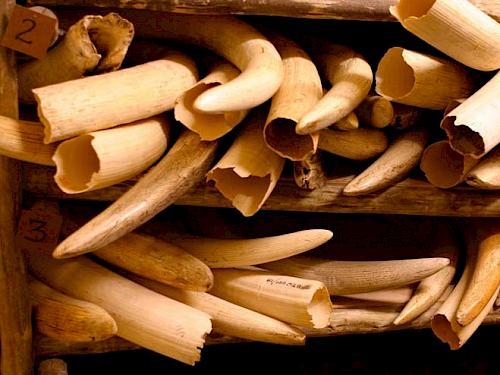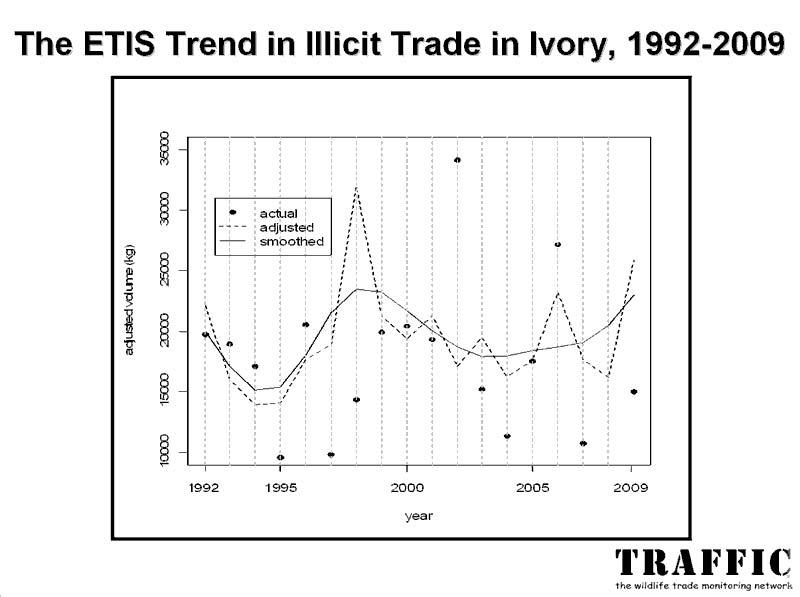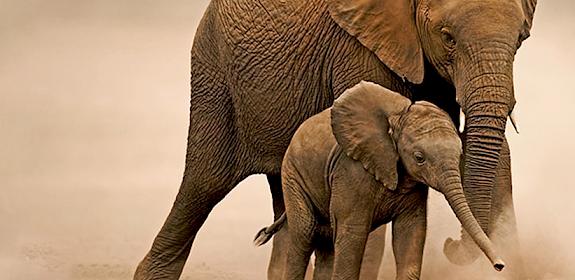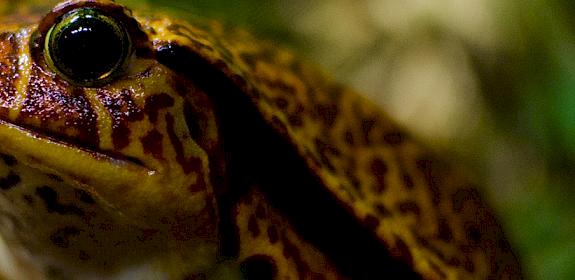First ivory auction from southern Africa takes place
Gland, Switzerland/Cambridge, UK, 28th October 2008-Four African countries are holding "one-off" ivory auctions over the next two weeks. South Africa, Namibia, Botswana and Zimbabwe have been approved by the member governments of CITES, the Convention on International Trade in Endangered Species, to sell ivory from government-managed stockpiles to Japan and China under very strict conditions.

The CITES member governments approved this sale in 2002 with details finalised in 2007, and have agreed that Japan and China meet all of the requirements for tight enforcement controls on the ivory auctions. The first auction took place today in Namibia when three buyers from Japan and three from China bought 7.2 tonnes of ivory for a total of USD1.18 million. The remaining 1.8 tonnes of the 9 tonnes on offer will be used by local craftsmen.
The African Elephant populations in South Africa, Namibia, Botswana and Zimbabwe are all listed in CITES Appendix II, which allows commercial trade under a permit system if several conditions are met. In terms of ivory specifically, there must be proof that the ivory being sold does not come from poached elephants, that all stockpiles are strictly regulated, that importing countries have strict control systems in place, and that all the proceeds go to elephant conservation programmes and community development programmes in the exporting countries.
WWF and TRAFFIC have active programmes in the countries involved and have been pivotal in developing the rigorous criteria that countries were required to meet before the sale could be allowed. We believe that all countries have met the criteria. WWF and TRAFFIC have also reviewed and consider adequate the control mechanisms in place in Japan and China. We will continue to monitor closely those controls after shipments take place.
"We have no evidence that this one-time sale will stimulate increased poaching or increased illegal trade in ivory," said Dr Susan Lieberman, Director of WWF International's Species Programme. "There is no evidence that supports this claim but WWF and TRAFFIC will continue to monitor the issue closely."
Following the previous one-off ivory sale to Japan in 1999, analysis of ETIS (the Elephant Trade Information System, a statistical database containing the world's largest collection of elephant product seizure data, which is compiled by TRAFFIC on behalf of the CITES member countries), indicated a decline in the volume of illegal ivory trade for the next five years.

According to Steven Broad, Executive Director of TRAFFIC: "The ETIS data strongly indicate a fall in illegal ivory trade levels following the previous ‘one-off' ivory sale. Whether this was cause and effect or a coincidence, we don't know, but TRAFFIC and WWF will be watching closely to see what happens to ivory seizure and elephant poaching levels once these auctions have taken place."
There is still significant poaching in Central Africa, which feeds the domestic ivory markets in Africa, which is where conservation efforts need to be focused. Poaching in Central and East Africa is not driven by the legal sale from Southern Africa; rather, it is driven by a failure to regulate domestic markets in West Africa, Egypt, and elsewhere
"WWF and TRAFFIC believe that attention should be focused on these markets, and on facts rather than conjecture as to what drives poaching and what drives illegal ivory trade", said Dr Lieberman.



